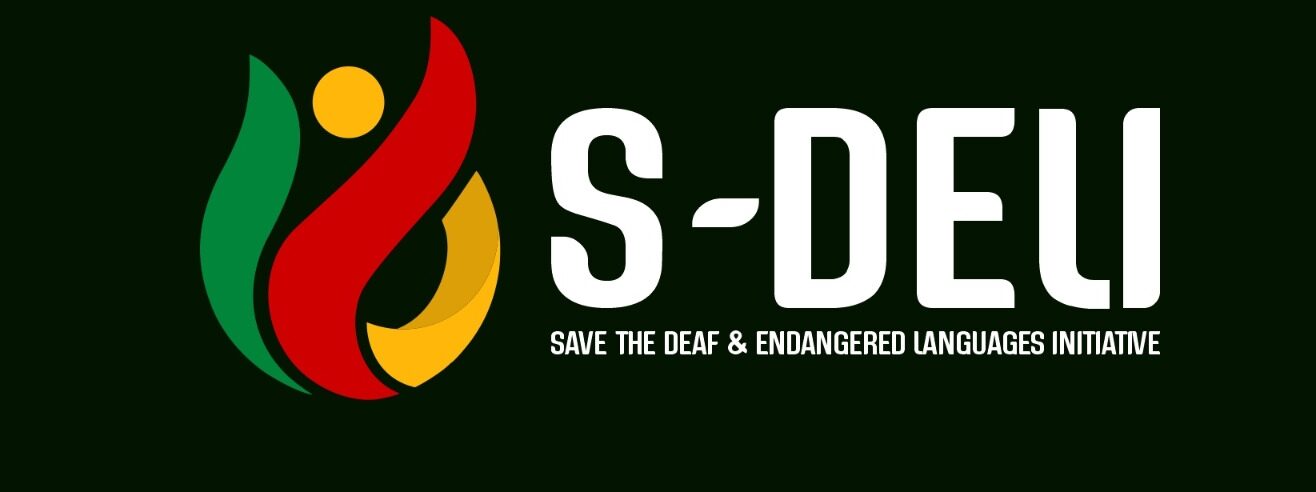Many Ways to Define Nigerian Deaf
Linguistically – Deaf in Nigeria are defined linguistically as a group of people that use manual or signed language as their primary means of communication, which most times incorporates iconic signs and gestures. Most deaf individuals learned their language in schools for the deaf, where both deaf and hearing experts are the teachers. Most post-lingual deaf individuals have speech and use it as a secondary means of communication, especially in a more hearing environment. Whether pre- or post-lingual, most Nigerian Deaf are fluent signers of the language that is most appropriately referred to as Nigerian Sign Language, NSL.
Genetically – Nigerian Deaf individuals that were born with congenital hearing loss due to some genetic occurrence could be defined from that point of view. Although our studies tend to question genetics with regards to hearing loss in Nigeria, that seems to be the best explanation for now for individuals born with congenital hearing loss. Such question as “to what extent is hearing loss genetic in Nigeria?” has always arisen in our studies, and we have continued to look into this under “Causes and Prevalence of Hearing loss in Nigeria.” Genetic factors are largely the major cause of hearing loss in the United States, but not in Nigeria.
Pathologically – deaf people are most times defined pathologically as people with post-natal hearing loss, usually caused by certain health issues. Up to ¾ of the deaf individuals we have studied, young and old, reported to have been diagnosed of a pathology that led to their hearing loss. Those who were not medically diagnosed because their case was not presented also report similar issues. Hearing people usually generally describe Nigerian Deaf in this regard, hence the obnoxious idea that all deaf people are “sick”. The early development stage (0-5 years) is usually very critical in the life of every child, and most deaf individuals with postnatal hearing loss experience attest to it. This is the type of hearing loss that could easily be prevented through Newborn Hearing Screening (NBHS), for which we strongly advocate.
Orientationally – Nigerian Deaf could be defined according to their orientations and inclinations. Although this is not prominently pronounced among deaf individuals in Nigeria compared to those in Western World due to lack of basic parameters that define the Deaf. Different deaf individuals have different or similar range of hearing or absence of hearing. Deaf individuals with a total absence of hearing are classified as profoundly deaf, while those with some level of hearing are classified Hard of Hearing (HH). But in the absence of hearing screening, all Nigerian Deaf are deaf. On the other hand, some Deaf with a level of hearing would like to use a hearing aid or cochlea implant, or rather like to be “cured”, while a lot others would like to “remain deaf”. But due to non-availability of hearing aids, most Nigerian Deaf have no choice than to remain deaf. Still on the other hand, some Deaf struggle to employ speech (or voice) alongside their signing, even when they don’t have it, while others prefer to maximize their signing, even when communicating with the Hearing. This could be viewed in terms of inclination towards Deaf Culture.
Nigerian Deaf Community (NDC) – the Nigerian Deaf Community is not defined by its geographical landscapes and bounds, but by its members, who are members of other larger communities, and by the uniqueness of its language and communication, which is not vocal but manual. Generally, not only the Deaf belong to a deaf community, but also, hearing people who are fluent users of a signed language. The Nigerian Deaf Community is a loose community because of its nature and distribution. For instance, two major types of NDC are identified – the Schools for the Deaf (special or inclusive), and the Deaf Associations (local, state, or national). Members of these two communities do not necessarily live together, but come together for a common goal as the nature of the community demands. We are currently studying to know the exact population of the Nigerian Deaf Communities.

